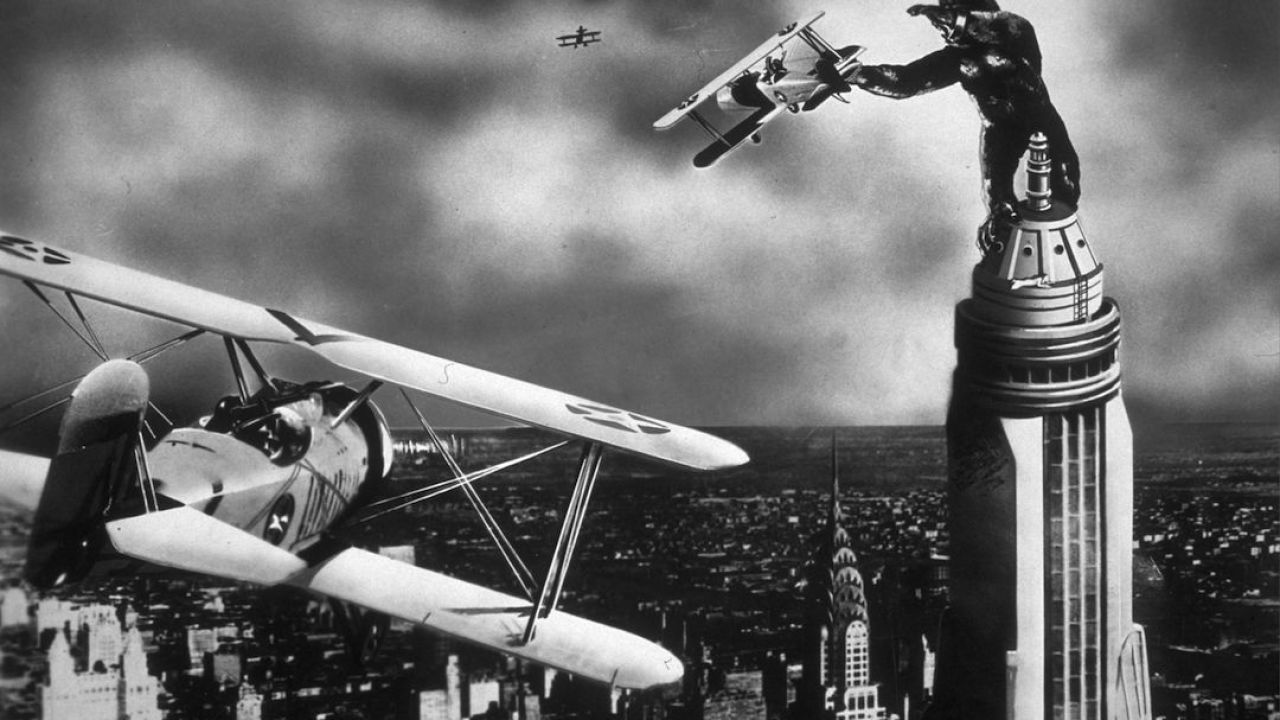Like Styx, Iron Maiden and Kansas? Then you'll love Erich Wolfgang Korngold. Malcolm Dome picks seven antique soundtracks that might appeal to the adventurous rock fan.
King Kong The 1933 classic monster movie had a score composed by Max Steiner, who would go on to become one of Hollywood’s most celebrated film composers. This was his breakthrough.
It paints a dark and tragic atmosphere, which dips into being moodily unpredictable. It’s ominous, foreboding and ultimately unsettling. The music breeds a sense of being disassociated from reality.
For fans of: Graham Bond Organisation, Atomic Rooster, Tool
**The Adventures Of Robin Hood **Erich Wolfgang Korngold created a lush, expansive sound that could be seen as the precursor to pomp rock. It has a pageant of colours and is perfect for the visual 1938 romp.
Like the performances onscreen, it was over the top, and all the better for it. Yet, it also had specific motifs to capture the intricacies of each character, and blend them into the overall shape of the score.
This is Korngold’s masterpiece.
For fans of: Styx, Iron Maiden, Kansas
2001: A Space Odyssey Director Stanley Kubrick came up with an original idea for the music to underpin his sci fi voyage in 1968, namely to use classic compositions of varying hue and texture to help evolve crucial scenes. It worked…brilliantly.
Some of the contacts between vision and audio have now passed into folklore. The remarkably percolating use of Also Sprach Zarathustra by Richard Strauss made the title sequence majestic and has the flavour of Black Sabbath, especially when it is repeated during the famed scene where apes learn to kill. Ligeti’s Requiem is a frightening acid trip to accompany the hallucinatory injection of the journey through the Star Gate. This is close to being a black metal fiesta. And Johan Strauss’ Blue Danube eases us into the poise and ballet of space flight through the infinite.
For fans of: Black Sabbath, REO Speedwagon, Bathory
Vertigo Bernard Hermann scored nine Alfred Hitchcock films, including Psycho. But this from 1958 is arguably his best work. He actually shocks through understatement, leaving spaces in a shadowy orchestration that is spartan and psychologically damaging.
The music gives the impression of a mounting crisis, and evokes a spirit not far removed from that of the doom genre. Moreover, it is very heavy, laying down an iron blanket that swells and almost forces you to vomit with its dysfunctional epiphany.
For fans of: Electric Wizard, Cathedral, Blue Cheer
**Fort Apache **This 1948 John Ford/John Wayne western owes some of its enduring status to the music of Richard Hageman. The Dutchman came up with ideas that nodded towards the blues and country… in other words, he did something very southern rock.
You can hear all the elements of a roustabout southern stand in the theme music, which would be reflected throughout the 70s and early 80s by so many great bands.
Hageman steeps his composition in the traditions of American folk, but in doing so, forms a bridge to what was to come a quarter-of-a-century or more later. All it lacks is a multiple guitar crescendo, but the string section fills in with equal battle stirrings.
For fans of: Lynyrd Skynyrd, The Allman Brothers, The Outlaws
_*For A Few Dollars More
*_There is no way that you cannot have an Ennio Morricone score in here. So many great ones demand attention, but this is perhaps his finest. The 1965 spaghetti western demanded musical empathy to accentuate its cruelty and seemingly heroic misogyny. What it got was beyond expectations.
The exhaustive manner in which the music is manipulated during the tense duel at the climax is both simple yet astonishing. Based around the chimes of a pocket watch, it’s enthralling artistry. And when you hear what Morricone fashioned throughout, there’s no doubt this is a template for a certain massive metal band.
For fans of: Metallica, Mastodon, Deep Purple
Morricone is playing at the O2 Arena in London on December 10, conducting a night of his greatest works.
**The Lady Hermit **A Shaw Brothers martial arts classic from 1971, with some stunning musical incantations from Yung-Yu Chen, one of the great film composers during the golden era for what was termed wuxia movies in Hong Kong.
The soundtrack butts eastern influences against obvious western ones. There are moments when you can hear the stirrings of world music, and understand he could be classed as a pioneer. Even though there’s also a hint of it being the musical equivalent of pulp fiction.
For fans of: Peter Gabriel, Arthur Brown, Anathema

